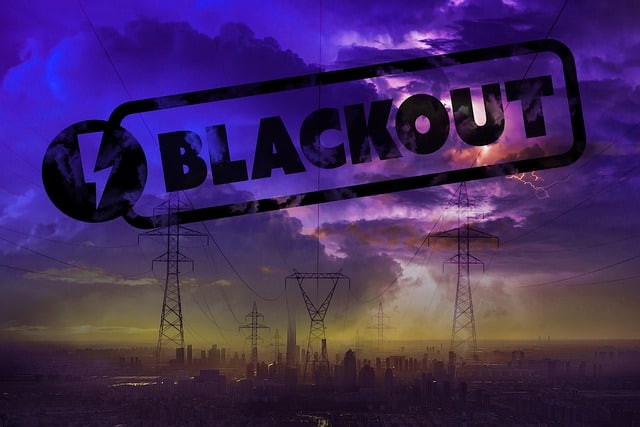Power outages can be a major inconvenience at any time of year, but they can be particularly dangerous during the winter months. Cold temperatures, snow, and ice can make it difficult to stay warm and safe if the power goes out. To stay safe during a winter power outage, it’s important to be prepared and know what steps to take.
The first thing you should do when the power goes out is to stay calm. Power outages are often temporary and can be resolved within a few hours or less. If you have a battery-powered radio, turn it on to listen for updates and information from local authorities.
If you have a smartphone, you can also check social media or news websites for updates. Your local power provider often has an outage hotline and online service outage map on their website that you can consult.
If the power outage is caused by a severe winter storm, it’s important to stay indoors and away from windows. If you’re outside, seek shelter immediately and avoid any areas that may be prone to flooding or landslides. If you’re driving, pull over and wait for the storm to pass before continuing.
Dealing with an outage while inside the home
Once you’re safe and have assessed the situation, it’s time to start thinking about how to keep yourself and your family warm during the power outage. If the outage is expected to last for an extended period of time, you should have a well-stocked emergency kit on hand. This should include non-perishable food and water, flashlights and extra batteries, a first aid kit, and a manual can opener. We’ll discuss that in more detail below.
If you have a fireplace or wood stove, you can use it to heat your home and cook food. However, make sure you have enough wood and kindling to last for several days. Always have a fire extinguisher on hand and smoke detector(s) installed to keep your home safe.
If you have a generator, you can use it to power essential appliances like your refrigerator, freezer, and a lamp. However, make sure you have enough fuel to last for several days and that you’re using it safely.
During a power outage, it’s also important to keep your phone charged and to stay in touch with family and friends. If you have a landline phone, you can use it to call for help or to check on loved ones. If you have a smartphone, you can use it to text, email, or use social media to stay connected.
In addition, it’s important to dress warmly in layers to help retain heat. Keep a blanket or sleeping bag handy in case your home gets too cold. Make sure you have extra blankets and bedding for everyone in the house.
Another way to stay warm during a power outage is to use hand warmers or hot water bottles. These can be filled with hot water and placed in your bed or under your clothes to provide warmth.
During a power outage, it’s also crucial to pay attention to any health concerns or medical conditions that may be exacerbated by the cold, such as hypothermia or asthma. Make sure you have any necessary medication on hand and take steps to protect yourself and others with health conditions.
Finally, it’s important to have a mode of transport available should you need to move to a warmer location. If your car is in the garage, a garage door opener with battery back up will operate even when the power is out.
10 items to have in case of a power failure
- A backup generator: This will allow you to power essential appliances like your refrigerator, freezer, and lights in case of a prolonged power outage.
- A battery-powered or hand-crank radio: This will allow you to listen to updates and information from local authorities during a power outage.
- Flashlights and extra batteries: In case of a power failure, flashlights will provide light during the dark and batteries will ensure they last longer.
- Candles and matches: Candles can be used as a source of light if the power is out for an extended period of time.
- Non-perishable food and water: Having a stock of non-perishable food and water will ensure you and your family have enough to eat and drink in case of a power outage.
- A manual can opener: This will allow you to open cans of food if the power is out and you don’t have an electric can opener.
- A first aid kit: Having a first aid kit on hand will ensure you’re prepared in case of any injuries during a power outage.
- A weather-proof shelter or safe room: This will provide protection from severe weather and flying debris during a power outage.
- A fire extinguisher and smoke detector: These will ensure your home is safe in case of a fire during a power outage.
- A power bank: A power bank is charged ahead of time and kept charged. You can then use it to partially charge a device like a cellphone if needed when the power is out. This will ensure your phone doesn’t run out so you can stay in touch with family and friends and stay informed during a power outage.
Summary
In conclusion, power outages can be a major inconvenience, but they can also pose a serious safety risk if you’re not prepared. By staying calm, staying informed, and having a well-stocked emergency kit on hand, you can keep yourself and your family safe and comfortable during a power outage.
Remember to stay away from any equipment that may be damaged or malfunctioning, keep your phone charged, stay in touch with family and friends, and never run a generator indoors or in an enclosed space.
Want to read another perspective about dealing with a power failure? We’ve written a second article on the subject.


